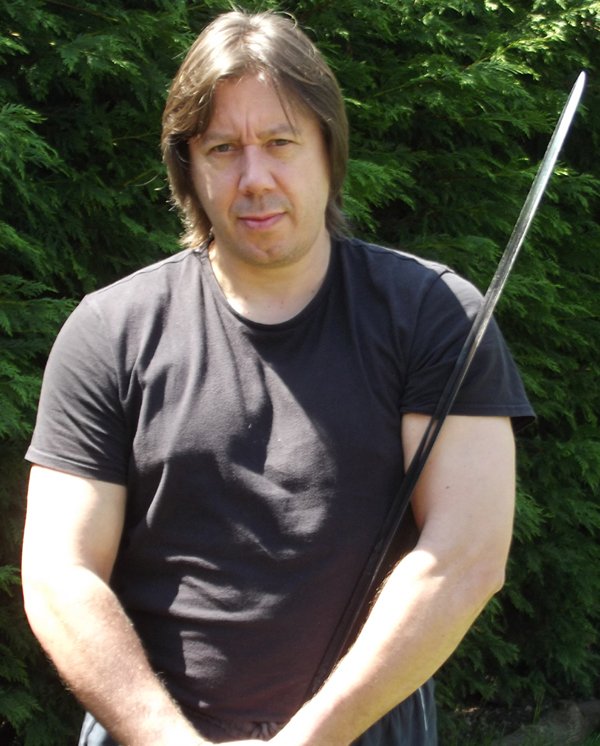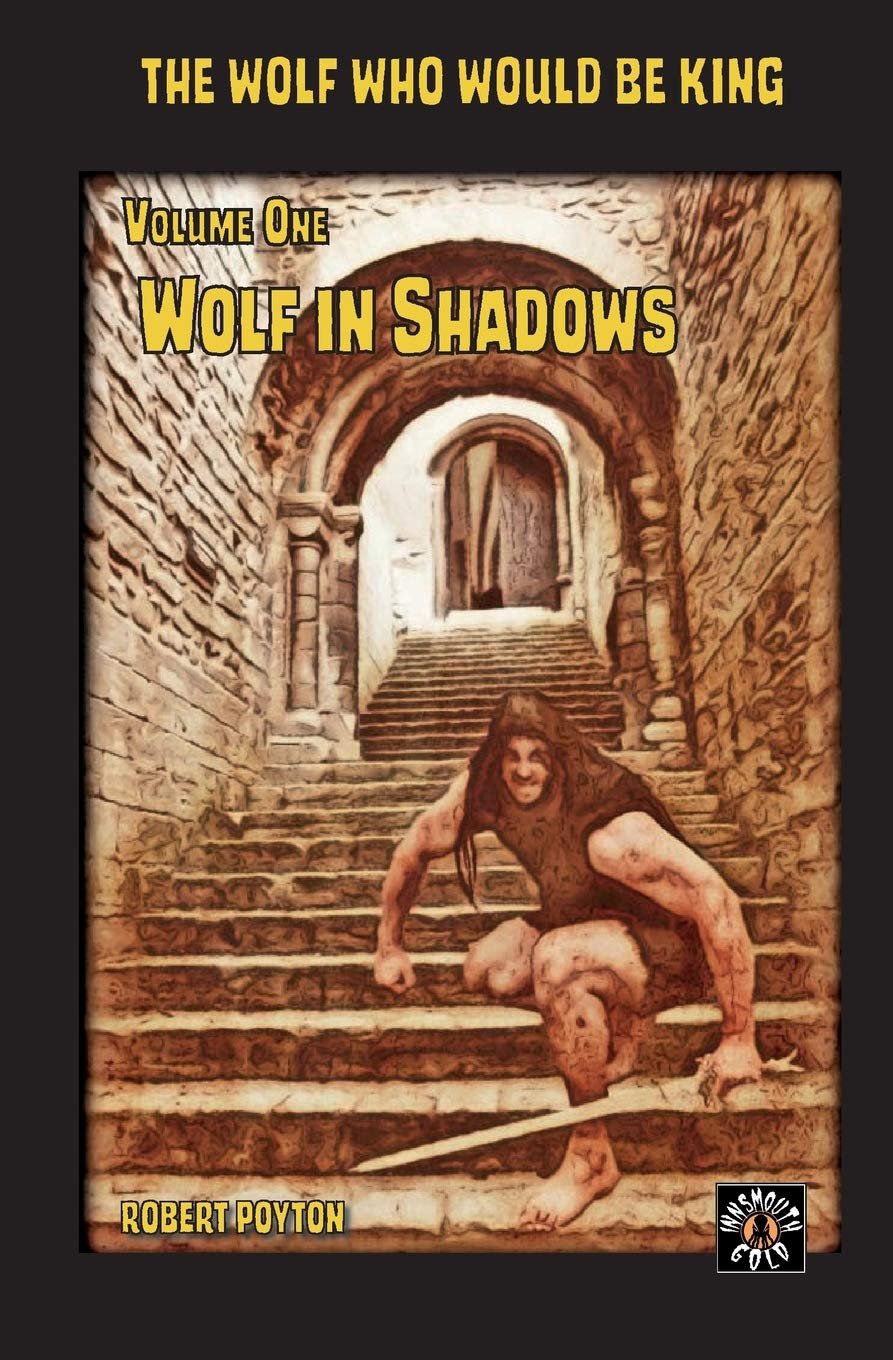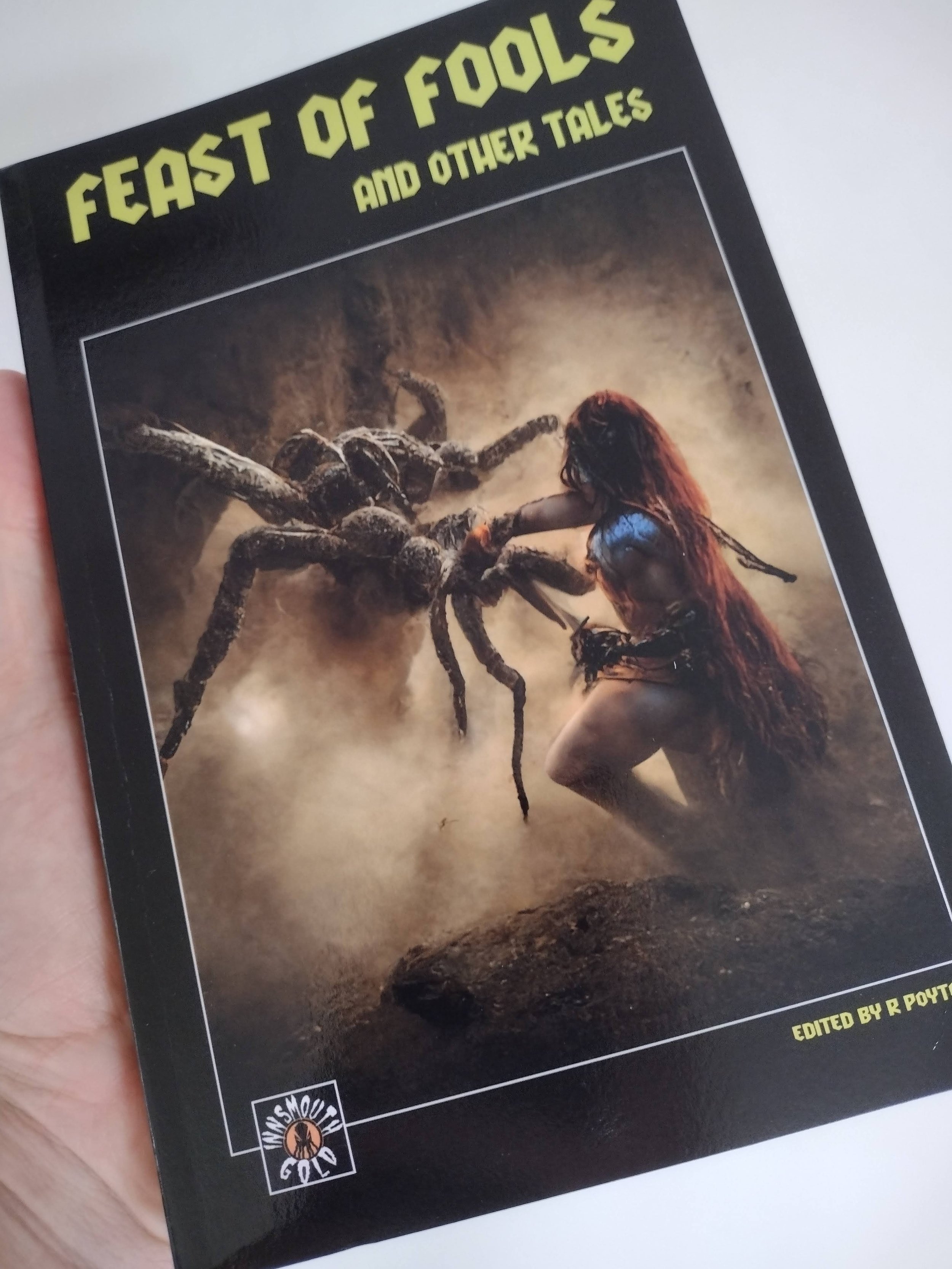Independent Author Spotlight: Robert Poyton
Please introduce yourself and tell us about your background as a writer.
I’m a musician and martial artist, originally from East London, now living the rural lifestyle. My parents taught me to read at a young age and since then I’ve always had at least one book on the go! I grew up with the classics, such as the Three Musketeers, Treasure Island, etc, and was a teenager in the golden age of 70s paperbacks.
I’ve been writing non-fiction for quite a while. Then, around six years ago I got an urge to try my hand at writing ghost stories, set in the spooky Cambridgeshire Fens, where I lived for a while. That was my first collection, Remnants. I enjoyed the process and got some encouraging reviews, so went on to write more collections, novellas and also edit a number of anthologies. I’ve also had stories accepted in other anthologies and magazines, such as Lovecraftiana.
I’m always happiest when creating, whether it’s music or writing. I do enjoy the research and first draft part of any project. Proofing and layout is another matter, but equally important! My aim with my fiction is to put out the type of work that I would enjoy reading myself. There’s also the challenge of coming up with a different angle on older ideas.
What are the most prominent influences on your writing? How do you incorporate those influences without being derivative?
Without a doubt, the Big Three – Lovecraft, Howard and Smith. The first two in particular. Smith is a strong influence but his abilities as a writer are way beyond my reach! Outside of those – Karl Edward Wagner, Fritz Leiber, Thomas Ligotti, and so on. Everything I read and enjoy is an influence, I guess. On the other hand, even with a book I don’t enjoy, there is often an interesting phrase or two, or plot idea to pick up.
As I mentioned, I’m usually reading two or three books at a time, usually one fiction and one research. I currently co-host the Innsmouth Book Club podcast and that has been great for introducing me to “new” authors, such as Henry Kuttner, Caitlin Kiernan, etc.
Incorporating influences works in two ways. The first is that great phrase or plot idea that I might “borrow.” There is a saying – all artists are thieves! Same in music. You hear a riff and think, oh that’s interesting... how about if I took that to the G chord at the end... Then there is the question of style. In Remnants I deliberately tried to evoke the styles of MR James and Lovecraft, a bit like a tribute band. One review called the stories “derivative” which I was quite happy with, as that is the effect I was going for!
My Wolf Who Would be King series is very much intended as a Robert E Howard/Conan tribute. However, while trying to keep that Howardian aspect intact, I’m finding as I go on that I’m finding my own voice more and more, too. This is the same as music. Every band starts out playing some covers of other bands they like. The Beatles, The Sex Pistols, everyone. Then, you develop your own sound.
However, there’s also the question of genre. If I’m playing in a surf band, there won’t be 15 minute keyboard solos and several tempo changes. The band plays surf! So if you are writing S&S, there are certain conventions – particularly if you are writing to submit to a specific magazine or collection. That’s not to say that you can’t bring in different themes, or mix genres. So it largely depends on what type of work you want to produce. In music or writing, especially now, I think it is hard to come up with something truly unique. In which case, be proud to wear your influences on your sleeve, but you don’t have to be bound by them.
With self-publishing easier than ever, there are tons of books being released every day. What makes your work stand out from the crowd? What can readers get out of your work that they can’t from anyone else?
There are two important factors here for me. The first is presentation. We make every effort to make the books that Innsmouth Gold publishes as professional looking as possible. That means a good layout. I’m afraid to say I see some self pub books that have tiny or huge margins, size 14 fonts, and general poor design. I know it takes work, but you have to get a consistent, tidy layout. Then there is artwork. I’m lucky, in that I was trained in desktop publishing, and my wife runs Graveheart Designs and is a talented artist. That means we can work up nice covers and interior art for our books.
So that’s presentation, then there is content. Once written, I try and edit a piece to get it as good and as interesting as possible. There is a saying in music – a mix is never finished, it is surrendered. Same with books. You could go on and on tweaking, at some point you have to pull the trigger and send it to the printer!
I like to think that I am a decent level writer, who puts together good plots. I feel confident writing action scenes, maybe my martial art background helps. I’ve helped trained stunt people in the past, and work a lot with weapons, I feel that gives some insight. I’ve yet to stand, bloody battleaxe in hand, atop a mound of slain enemies, but the day is young! I also enjoy putting Easter eggs in my works, plus a few in-jokes and, where it’s called for (such as my Kolon the Barbarian story “The Tower of the Toad” in the Nookienomicon anthology) outright humour. But it’s also good to chill your audience, or creep them out, too.
Many authors say marketing is one of their biggest challenges. What tactics have you found to be most effective for getting your name out there?
Absolutely, I find it a real chore. And being self-published means I have to do it all myself! I found the best way is not to endlessly plug your books across social media, but to join groups, chat to people, build relationships. I mentioned the podcast earlier, that is another avenue, as well as guesting on other podcasts. That helps get your name around. I’ve also found that both the Lovecraftian and S&S author communities are incredibly supportive, everyone helps each other out. I think that is a nice continuation of the Lovecraft Circle ethos, that mutual sharing and support network.
How much do your audience’s expectations factor in to what you write? Does this ever cause you to hold back from experimenting?
For my own work, I write primarily for myself. Now, when writing a series, such as the Wolf Saga or my Assault Team 9 military sci-fi, you have to keep a certain consistency across the books. But outside of that – go wild! My fellow author Tim Mendees and I often chat over “what ifs.” What if you had the Three Musketeers meeting Lovecraftian horrors? What if you put Poe in a sci-fi setting? This can throw up some great ideas.
So I think it’s important to be open to new ideas without – going back to the surf analogy – necessarily straying too far from your genre. Having said that, I feel that writers like Thomas Ligotti have the genius ability to create something truly innovative.
Have you had any new stories published recently? Are you currently working on any?
Our latest anthology Feast of Fools and Other Tales went out a month or so back. That’s our fifth anthology, this time on a Sword and Sorcery theme, so 11 new stories from what we now call the Innsmouth Writing Circle!
At time of writing, I’m just proofing Volume 7 of my Llorc mac Lughaidh series, Wolf on the Waves. This volume is a collection of five stories charting Llorc’s career as a pirate on the Southern Seas. I’m pleased with this one, it combines Howardian action with Harryhausen monsters, a visit to a version of Innsmouth and also some zombies!
My next planned project is a series of three novellas as a sequel to REH’s Worms of the Earth. It starts in Dark Ages Britain, with a Roman investigation into the mysterious disappearance of Titus Sulla. I’ll be starting that next month, hopefully. There will also be a new Innsmouth Gold anthology on the way that puts Lovecraft in a Dickensian setting.... The Pickman Papers. The Kickstart for that will be up in late March.
Name one newer and one older book you have read and enjoyed recently. (“Newer” meaning from the past year or so, and “older” meaning written before 1980.)
Newer books – would be any of the latest S&S collections coming out, such as Savage Realms, Whetstone, your own DMR books, etc.
Older – the Keith Taylor Bard series. I think they may be 80s, but I only just “discovered” them last year. Great books. I’d also like to give a shout out to Adrian Coles The Voidal series, really enjoyed that, too.
Any final words?
Thanks for the invite! This is a site I often check out. It’s good to see not just a continuation in S&S but an expansion of it! There are so many good books and collections coming out, it’s encouraging to see S&S developing. I think it often gets written off as a literary form, but to me it continues to fascinate and entertain. Now, if only we could get a decent S&S movie or two... but that’s another story! Oh, and people can find details of all my various projects at Innsmouth Gold. Cheers!



